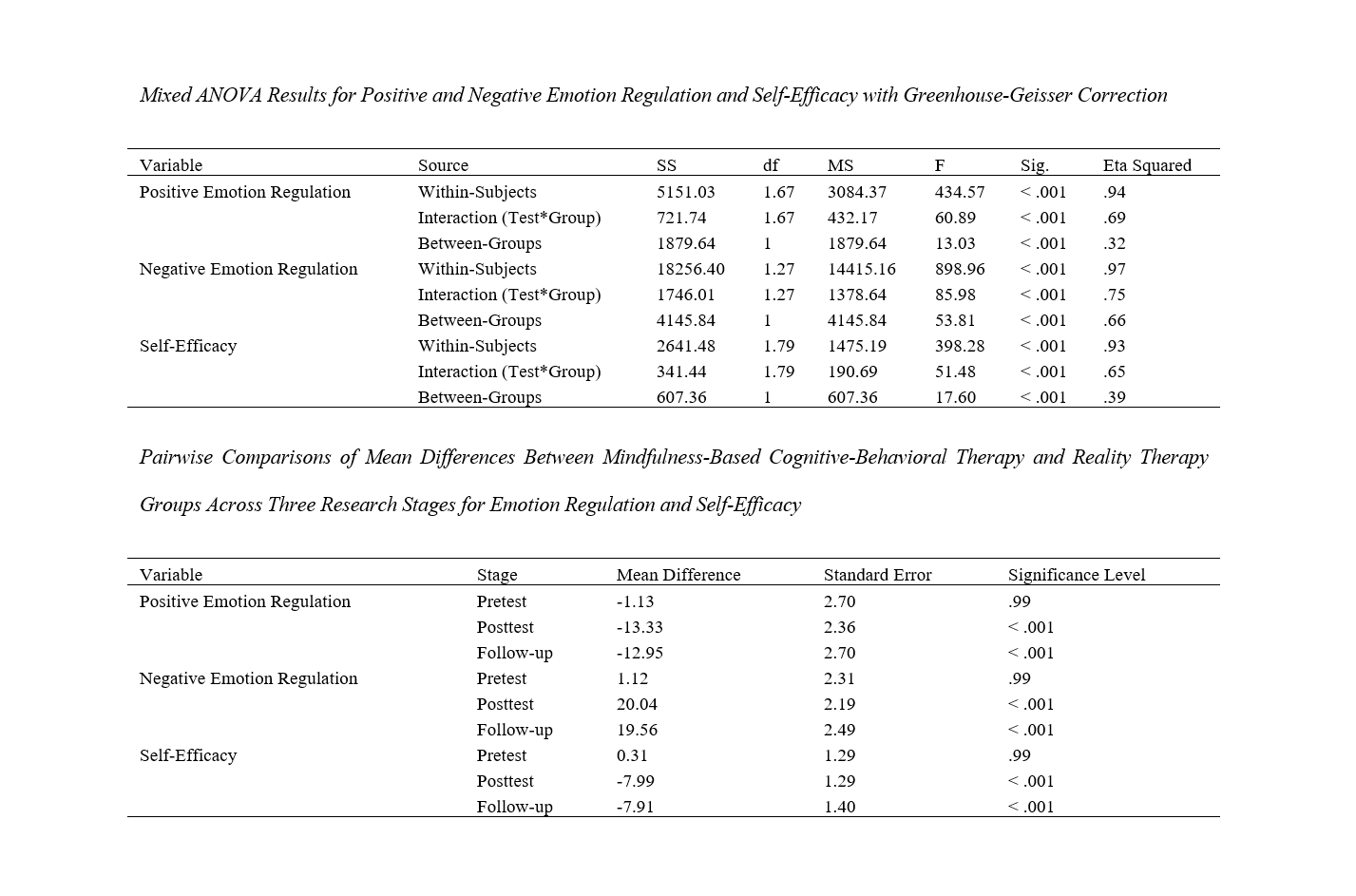Comparison of the Effectiveness of Mindfulness-Based Cognitive-Behavioral Therapy and Reality Therapy on Emotional Regulation and Self-Efficacy in Women Seeking Divorce
Keywords:
Emotional regulation, self-efficacy, mindfulness-based cognitive-behavioral therapy, divorce, reality therapyAbstract
Objective: This study aimed to compare the effectiveness of mindfulness-based cognitive-behavioral therapy and reality therapy on emotional regulation and self-efficacy among couples seeking divorce.
Methods and Materials: The present research was a quasi-experimental study with a pre-test, post-test, and follow-up design, including a control group. The population consisted of all couples seeking divorce referred by the judiciary to the psychodynamic center of Jolfa city from spring to winter 2021. The sample comprised 60 individuals chosen through purposive sampling and randomly assigned to three groups of 20. Following sampling, two experimental groups received either group mindfulness-based cognitive-behavioral therapy in eight 90-minute sessions (weekly) or group reality therapy in eight 90-minute sessions (weekly), while the control group received no intervention. Data were collected using the Garnefski and Kraaij Cognitive Emotion Regulation Questionnaire (CERQ-P-short) and the Sherer Self-Efficacy Questionnaire (DCI-SF). Data analysis was performed using mixed repeated measures ANOVA and Bonferroni post-hoc tests with SPSS version 24.
Findings: The findings indicated that there was a significant difference between the overall means of emotional regulation and self-efficacy in both the mindfulness-based cognitive-behavioral therapy and reality therapy groups, with mindfulness-based cognitive-behavioral therapy having a greater impact on emotional regulation and self-efficacy (P<0.05).
Conclusion: Based on the results obtained, both mindfulness-based cognitive-behavioral therapy and reality therapy are effective in improving emotional regulation and self-efficacy among women seeking divorce. However, it can be said that mindfulness-based cognitive-behavioral therapy is preferable to reality therapy.
Downloads

Downloads
Published
Issue
Section
License

This work is licensed under a Creative Commons Attribution-NonCommercial 4.0 International License.


















